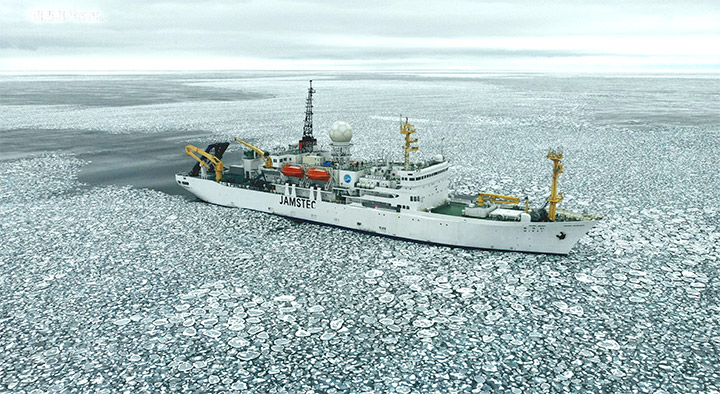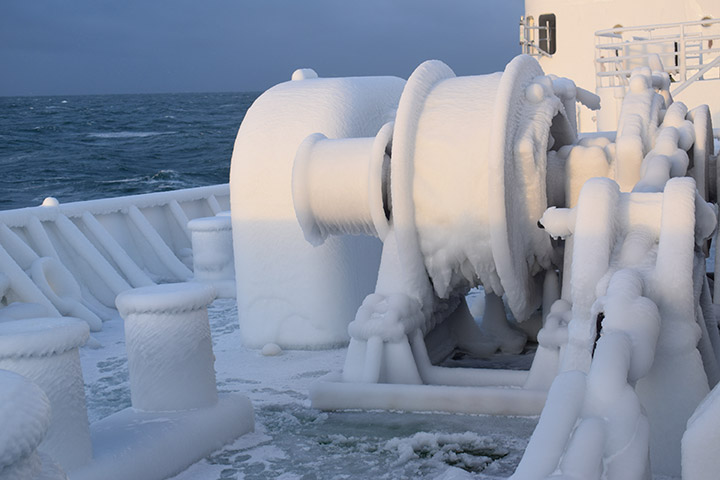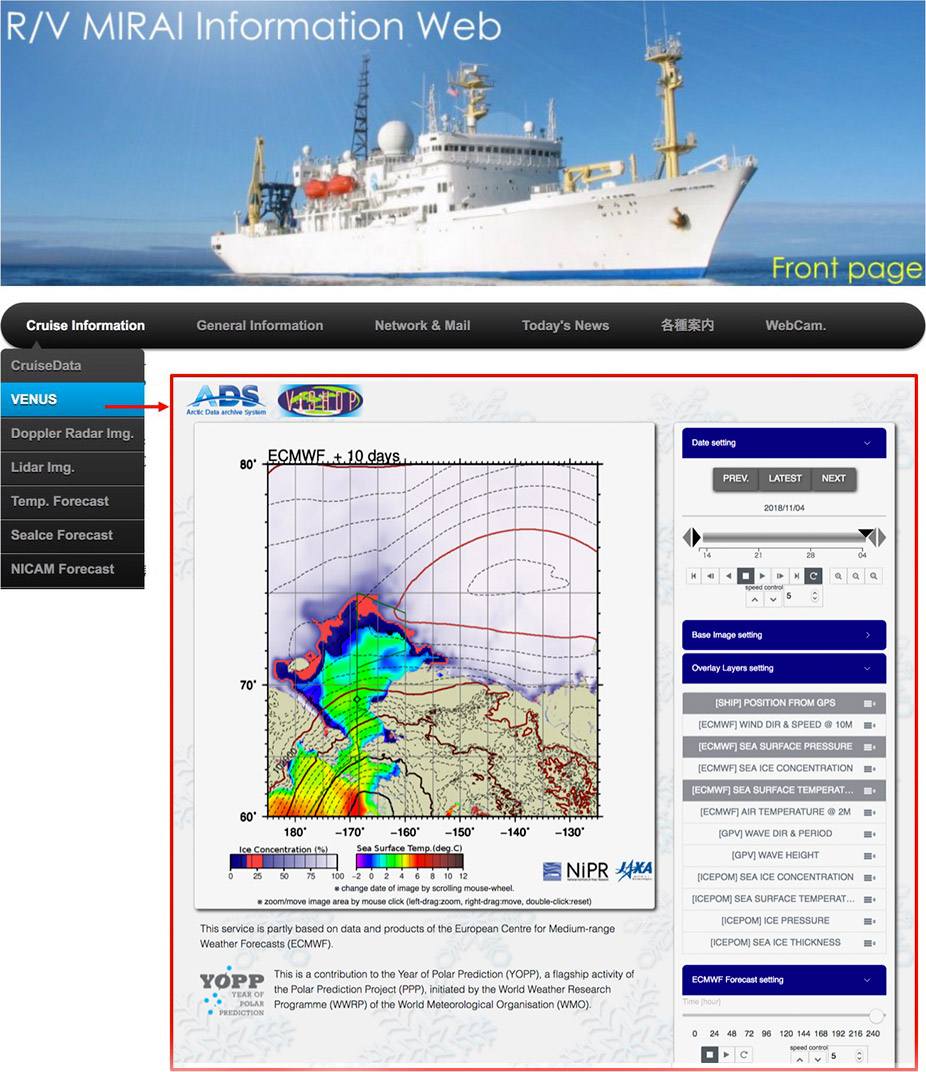Theme 1
Predictability study on weather and sea-ice forecasts linked with user engagement

R/V Mirai moving in the sea-ice area in the middle of October, 2019 / Photo by Jun Inoue (NIPR)
For higher accuracy in the weather, sea-ice and ocean prediction in the Arctic region, we promoted the following three activities under the framework the Polar Prediction Project (PPP) of the World Meteorological Organization (WMO): (1) intensive Arctic observations for establishing a sustainable Arctic observation network, as well as data assimilation–based observing system experiments, (2) study on the predictability of extreme weather events attributable to Arctic changes utilizing atmospheric and sea-ice prediction data provided by operational weather centers around the world, and (3) observational and numerical study focusing on improving the skill of sea-ice forecast, optimal route search, and wave prediction on the Northern Sea Route. We also conducted atmospheric soundings and wave buoy observations using R/V Mirai, and data assimilation and prediction experiments to understand impacts of the observations on the atmospheric and sea-ice predictabilities by employing the Earth Simulator supercomputer, etc.
Our findings from these activities include that the observation data of the Arctic region are highly effective for precise short-range weather, wave, and sea-ice predictions, and that such data are also helpful in predicting mid-latitude weather phenomena. In addition, based on the products from operational weather centers, we designed the best combination of atmospheric and oceanic initial states and the atmospheric forcing for our high-spatial-resolution sea-ice and ocean coupled model IcePOM. This skillful model would be ready for implementing medium-range sea-ice predictions on the Northern Sea Route. In collaboration with Theme 8, the weather and sea-ice prediction data from operational weather centers and the sea-ice forecast by our IcePOM were integrated into a system that is easily accessible on ships. This system was actually employed on the R/V Mirai cruise in the latter half of the project, which successfully demonstrated that such prediction information is helpful for both safety and activity of vessels traveling the Arctic Ocean.
Website for researchers on board R/V Mirai and a snapshot of the VENUS.
Going forward, while giving consideration to a good balance with various challenges, such as observation enhancement with environmental loading under limited observing and human resources, we will strive to establish a sustainable observing network that meets social needs.

Remarkable icing took place during R/V Mirai Arctic cruise in 2018 / Photo by Shuichi Fushimi (The University of Tokyo)
Research background and overview
Please see here.
Research achievements
Please see here.





